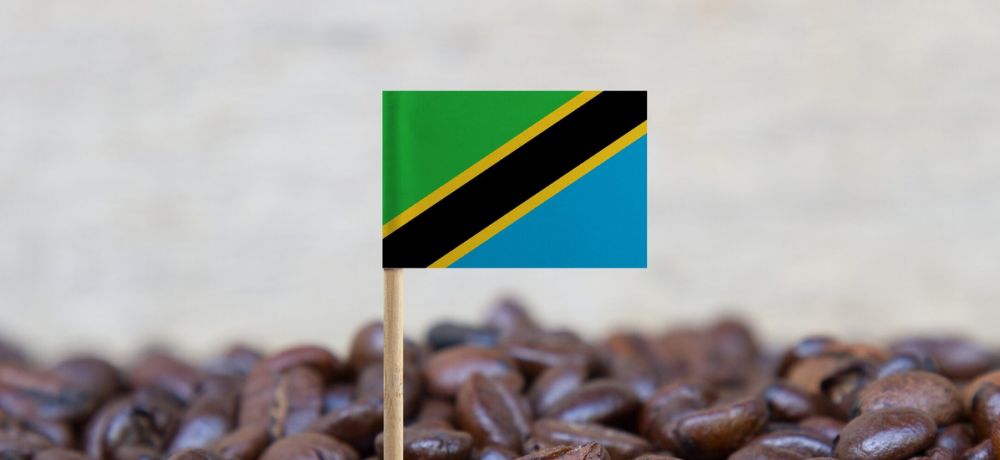Contents
- Incentives: Why Tanzania?
- Sectors: What does Tanzania offer?
- Business vehicles
- Company Establishment: Requirements and Procedures
- Basic laws for doing business in TanzaniaSales/Marketing Strategy
Incentives: Why Tanzania?
There are many reasons why you should consider doing business in Tanzania:
Peace and political stability: Tanzania has no history of civil wars, ethical conflicts or internal uprising
Population: Tanzania’s population is over 60 million people, which means it offers the right amount of manpower/workforce necessary for the business to succeed, There is a youthful, vibrant and educated workforce.
Rich natural resources: There is an abundance of natural resources including natural gas; minerals such as Tanzanite. Gold, Coal; vast arable land, and many more which are attractive to investors. The abundance in wildlife and other beautiful and unique attractions also provide opportunities for tourism and related investments.
Strategic geographical location: Tanzania has several ports, with the major ports located in Dar es salaam, Tanga and Mtwara, which offers opportunities in logistics businesses. Tanzania’s ports are relied upon by its neighbouring landlocked countries (at least 6) as well. Tanzania is also a member of EAC and SADC, which gives investors access to these markets.
Weather and Climate: The weather in Tanzania is conducive for investment in areas such as tourism, hospitality (construction of hotels and luxury lodges next to the national parks and in Zanzibar). The climate is also conducive for agricultural activities.
Sectors: What does Tanzania offer?
- Tourism
Tanzania is known for its stunning landscapes, wildlife and cultural heritage hence making it a popular tourist destination. Vast opportunities exist in ecotourism, hospitality, accommodation (building boutique hotels), safari services (ie. National parks & Game reserves) and cultural tourism. The government is committed to promote tourism and has implemented initiatives to enhance the sector’s growth.
- Real Estate Development
The government of Tanzania has been actively fostering an environment in real estate. Non-citizens may only acquire land (leasehold) for investment purposes, subject to the approval of the Tanzania Investment Center (TIC) for Mainland Tanzania or Zanzibar Investment Promotion Authority (ZIPA) for Zanzibar.
Investment in the hospitality industry i.e hotels and apartment complex for renting or selling both in the Island of Zanzibar, which attracts tourists with its white sandy beaches, pristine clear waters, climate and also in Mainland Tanzania (coastal regions including Dar es Salaam, Bagamoyo, Kigamboni)
- Mining & Extractive Industries
Tanzania is rich in mineral resources including gold, diamonds, coal, natural gas and our infamous gem, which is the Tanzanite. Opportunities exist in exploration, mining, processing and exporting of minerals. The government has implemented reforms to attract investments and improve the regulatory framework in the mining sector.
- Manufacturing and Industrialization
Opportunities exist in manufacturing sectors such as textiles and garments, food processing, chemicals and construction materials.
- Energy and Power
With significant potential for renewable energy sources including solar, wind, hydro and geothermal power. Opportunities exist in power generation, transmission, distribution and renewable energy projects.
- Infrastructure And Construction
Tanzania has a growing need for infrastructure development including roads, railways, ports, airports and urban infrastructure. Investment opportunities exist in construction, engineering, project management and related services.
The government is actively promoting public-private partnerships (PPPs) to facilitate infrastructure development.
- Information & Communication Technology (ICT)
Opportunities in telecommunications, internet services, software development, e-commerce and digital solutions.
- Financial Services
There is a need for innovative financial services and products to cater for the growing population in areas of banking, insurance, microfinance and fintech.
- Large Scale Agriculture and Agribusiness
Tanzania has vast agricultural potential with favorable climate and fertile lands. Opportunities exist in crop cultivation, livestock farming, fisheries and agro-processing. Investment possibilities include commercial farming, irrigation systems, food processing and export oriented ventures such a horticulture.
Business Vehicles
The choice of business entity will depend on factors such as the nature of the business, the level of liability protection desired and the extent of control the investor wishes to maintain.
- Private Limited Company (PLC)
-It offers limited liability protection to stakeholders ie. Their personal assets are generally separate from the company’s liabilities.
-Minimum of two shareholders or two directors who can be foreign individuals or entities.
-Suitable for medium to large scale businesses.
-Registered office address in Tanzania
- Public Limited Company
-It is suitable for larger businesses planning to raise capital from the public through an IPO (Initial Public Offering).
-Requires a minimum of seven shareholders and three directors.
-Shares can be traded on the stock exchange.
- Branch Office/Subsidiary Company
This is an extension of a foreign company, allowing it to conduct business in Tanzania.
-A foreign company must have a registered office in Tanzania.
-A representative or branch manager responsible for operations in Tanzania.
-Suitable for foreign companies wishing to establish a presence in Tanzania while maintaining control and liability.
Cost: Registration fees may vary depending on the nature of the business and specific requirements.
- Representative Office
-This is limited to carrying out market research, promotional activities and gathering information on behalf of the foreign company.
-It cannot engage in commercial activities or generate income directly.
-Requires registration with the TIC
-Suitable for companies seeking to explore business opportunities or establish local presence before fully committing to operations.
Cost: May vary depending on the nature of partnership, legal and professional services and any specific agreements or arrangements made.
- Joint Ventures
-A joint venture involves entering into a partnership or cooperation agreement with a Tanzanian entity or individual.
-The terms and conditions of a JV will be outlined in a legally binding agreement.
Cost: May vary depending on the nature of partnership, legal and professional services and any specific agreements or arrangements made.
Company Establishment Procedures
Establishing a business in Tanzania involves several procedures as a foreign investor:-
- Business Registration
- Choose a business name: select a unique name for your business that complies with Tanzanian naming regulations.
- Reserve the business name: Submit an application to the Business Registration and Licensing Agency (BRELA) to reserve your chosen name.
- Prepare incorporation documents: draft and notarize the Memorandum & Articles of Association, which outlines the company structure, objectives and shareholders details.
- Obtain a company seal.
- Register the business: Submit the incorporation documents along with the necessary registration fees to BRELA for company registration.
Timeframe: 2-4 weeks depending on the completeness of documents and workload at BRELA.
Costs: Registration fees vary depending on the type of company and amount of share capital. Eg. The registration fee of a company with a share capital of not more than TZS 1 Million (approximately $430) is TZS 95,000 (approximately $39).
Share capital of more than 50 Million (approximately $21,000) is TZS 440,000 (approximately $184).
Registration of a company without share capital is TZS 300,000 (approximately $125) as per the Companies (Fees Payable to the Registrar) Regulations, 2014.
- Investment Approval
Certain sectors in Tanzania require additional investment approvals such as Tanzania Investment Centre (TIC) Certificate.
- Submit the investment application: prepare the necessary documents including a business plan, financial statements and any sector-specific requirements and submit them to the authority for approval.
Timeframe: 4-6 weeks depending on the complexity of the project and workload at the approval authority ie. TIC.
Costs: They vary depending on the sector and the size of the investment.
- Tax Registration
- Obtain a Tax Identification Number (TIN) by making an application to the Tanzania Revenue Authority (TRA)
- Register for VAT: If applicable, register for Value Added Tax with the TRA.
Timeframe: 1-7 days from the time of making the application.
Costs: TIN registration is generally free of charge.
- Business Licenses and Permits
- Identify required licenses and permits depending on your business activity. You may need to obtain specific licenses and permits from regulatory authorities or sector-specific bodies.
- Submit license applications.
Timeframe: The duration for obtaining licenses and permits varies based on the specific requirements and efficiency of the issuing authorities. It can range from a few days to several weeks.
Costs: Depends on the type of business and the sector.
Basic Laws For Doing Business
It should be noted that laws can be complex and subject to change, thus it is always advisable to consult with a local legal professional (Advocates) or the relevant government authorities such as the Ministry of Labor, Ministry of Land, Housing & Human Settlement Development, Immigration Authorities or the Tanzania Revenue Authority for the most up-to-date and accurate information.
- Employment Laws
Work Permits: foreigners who wish to work in Tanzania generally require a valid work permit.
Tax Obligations: Foreigners working in Tanzania are subjected to the local tax regulations eg. Income Tax from their employees and remitting it to the Tanzania Revenue Authority (TRA).
- Immigration Laws
Visa Requirements: Foreigners intending to enter Tanzania will require either a tourist visa, business visa, work permit and residence permits, unless they are citizens from visa-exempt countries.
- Business Visa:- For foreigners visiting Tanzania for business purposes such as attending meetings, conferences or conducting business negotiations.
- Work permit:- It is issued by the Immigration Department and usually requires sponsorship from a Tanzanian employer.
- Residence Permit:- For foreigners planning to reside in Tanzania for an extended period of time to do investments.
The work and residence permits can both be accessed online through two bodies ie. Immigration Department OR the Prime Minister’s Office websites. Applicants are advised to choose the right Class of Work or Residence Permit.
- Visa extensions and renewals: If you wish to extend your stay beyond the authorized period, it is advisable to contact the Tanzanian Immigration Department, Embassies or Consulates or seek Legal advice to understand the process and requirements.
Normally, an investor who wishes to invest in Tanzania will be required to invest a minimum capital of $500,000 for projects which are wholly owned by foreign investors/joint venture and a minimum capital of $100,000 for projects owned by local person/Tanzanian citizen. NB: This specific amount has been set in order to create more employment opportunities for the local people and reduce the higher risk of closing the business by the investors.
The government of the United Republic of Tanzania ensures safety of the investors as there are various services offered to them through immigration services, labour services, EPZA, TRA, TBS, BRELA, NEMC, OSHA, TMDA, NIDA, TANESCO, Ministry of Lands and Human Settlements Services given to the investors after getting permission and licenses to invest in Tanzania and approvals in the Tanzania Investment Center (TIC) One stop Facilitation center.
- Real Estate Laws
Land Ownership in Tanzania: All land belongs to the government; Individuals and entities can only acquire rights to use the land. Foreign individuals and companies can generally lease land for a Maximum period of 99 years.
- Property Acquisition: Foreigners can acquire property rights through long-term lease, commonly known as Right of Occupancy (RO) or by purchasing shares in a company that owns the property.
- Land use and Development: This is regulated by planning and zoning laws depending on the specific location and jurisdiction. It is essential to obtain necessary permits and approvals from the relevant local authorities before undertaking any constructions or developmental projects.
- Transfer of Properties: This involves a series of legal processes including title search, verification of property ownership and registration of the transfer with the appropriate land authorities. It is crucial to engage a qualified attorney to handle the transfer process and ensure all legal requirements are met.
- Taxation: Foreigners acquiring or selling property in Tanzania may be subjected to various taxes including Stamp Duty, Capital Gains Tax and Value Added Tax (VAT). The rates and regulations may vary, so it is advisable to consult with a tax professional for specific guidance.
- Tax Laws and Incentives
Tax Incentives granted for Investments outside Freeport and Free Economic Zones
- During the construction stage of an approved enterprise or approved domestic enterprise, the enterprise shall be exempted from customs and import duties and other similar taxes on machinery, equipment, spare parts, raw materials, vehicle and other goods necessary and exclusively required by that enterprise for construction.
- Raw materials for trial operations of an approved enterprise or approved domestic enterprise may be exempted from import duties provided that the quantity of such raw materials does not exceed eighteen month’s supply for one shift production operation.
- 5 years tax holiday
Tax Incentives Under The Zanzibar Investment Promotion And Protection Act, 2004
- 10 year Corporate Tax Holiday and 25% tax rate for the subsequent ten years.
- 10 year withholding tax holiday on dividends to non residents.
- Duty and VAT Exemption on raw materials, machinery, equipment and other inputs.
- Stamp Duty Exemption
- 100% investment deduction on capital expenditure within 20 years.
- Exemption from Tax on dividend for ten years.
- Duty and Tax free Import of goods from domestic area permissible.
- Duty Free import of raw materials for construction of factory buildings.
- Duty free export of goods produced.
- Exemption of income Tax on interest on borrowed capital.
- Exemption from payment of all taxes and levies imposed by local government authorities for gods and services produced in Free Economic Zones.
- On site custom inspection of goods in lieu of off-port inspection.
Tax incentives for Investors investing in Free Zones are granted the following tax incentives:
- Exemption from any tax on all goods destined for re-export.
- Exemption from local taxes on all goods produced in Freeport for export
- Exemption from payment of corporate tax for the first 20 years.
- No limit to the durations that goods may be stored to Freeport Zones.
- 100% retention of all profits.
- 100% foreign ownership allowed.
- Free repatriation of profit.
NB: 20% of turnover is allowed for sale at the local market and is subject to the payment of all taxes.
Tax Incentives Provided Under The Value Added Tax Act, 1997
In order to encourage export of locally produced goods from Tanzania all exports are zero rated under the VAT law.
Goods are regarded as exported out of the country if they are made available at an address outside Tanzania.
VAT Exemption and special relief: Goods and services which are exempted from VAT:-
Such goods or services are like food crops and livestock supplies, equipment’s used for storage, transportation, and distribution of natural gas, health supplies and hospital equipment, education services, financial and insurance services, transportation of persons, sale or lease of an interest in land and tourist services such as guide services, game driving, water safaris, animal or bird watching, park fees and tourist charter services. Aircrafts, aircraft engines parts and maintenance are also VAT exempt supplies.
Under the VAT law, some persons and organizations are entitled to relief from VAT within the limits and conditions subject to procedures laid down. Some persons such as importers of capital goods enjoy 45% VAT relief. Some goods are given special VAT relief at the rate of 100%.
Tax Incentives Provided Under The Income Tax Act, 2004
- Corporate tax rate.
The income tax rate for resident and non-resident companies is 30%. (No discrimination)
There is a reduced rate of 25% which is charged for three years to newly listed companies with Dar es Salaam Stock Exchange, with at least 35% of equity share issued to the public.
- 100% capital allowance in agriculture.
Investors in agriculture enjoy 100% capital allowance on expenditure incurred on plant and machinery, including windmills, electric generators and distribution equipment used solely in Agriculture.
- 50% Initial capital allowance.
50% allowance – plant and machinery that is used in manufacturing and installed in the factory or providing services to tourists and fixed in a hotel.
37.5% – computers and earthmoving equipment.
5% – for buildings dams, water reservoir etc.
- Withholding tax exemption
The law provides exemption of withholding tax chargeable by foreign banks on interests payable to strategic investors as defined by Tanzania Investment Act. This is one of the measures devised to encourage investment in the country.
- Tax Credit
The income tax law provides for tax credit in case the tax was paid abroad on the same income, which was assessed in respect to resident person (Individual or entity).
- 100% Deduction in mining operations.
The investments in mining operations get special treatment in Tanzanian tax system. The whole expenditure incurred for the year (both capital and revenue expenditure) is deducted when calculating taxable income.
Tax Incentives Granted Under the EAC Customs Management Act, 2004
Tanzania is a member of East African Customs Union which involves 5 countries of Kenya, Uganda, Tanzania, Rwanda and Burundi. Movement of goods among these countries is duty free. This is an attractive incentive to producers of goods in the region as long as they meet the Rules of Origin Criteria which were established and agreed upon by member states.
Far far away, behind the word mountains, far from the countries Vokalia and Consonantia, there live the blind texts. Separated they live in Bookmarksgrove right at the coast of the Semantics, a large language ocean. A small river named Duden flows by their place and supplies it with the necessary regelialia. It is a paradisematic country, in which roasted.


